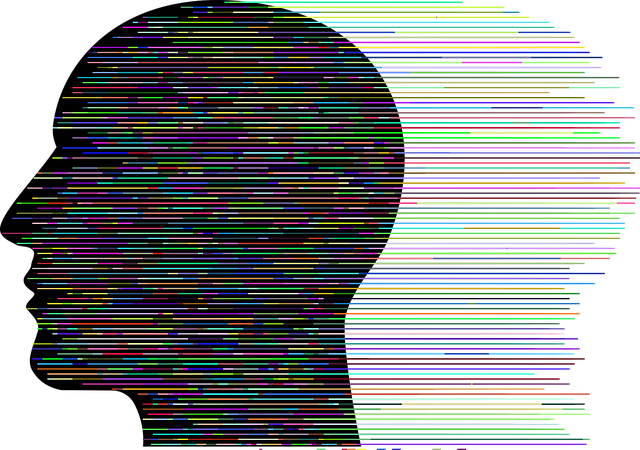Mental wellness encompasses emotional, psychological, spiritual connection, and religious practices, all vital for overall mental health. Therapy for Spiritual-Religious Issues recognizes the spiritual dimension of well-being, with journaling serving as a powerful tool to explore and enhance mental wellness, particularly in addressing spiritual-religious concerns. By documenting thoughts and experiences, individuals gain insights into themselves, trace patterns, and develop healthier coping mechanisms. Personalized journaling provides a safe space for introspection, self-soothing, and healing, significantly contributing to trauma support services. Incorporating journaling into routines can transform lives, offering valuable insights and promoting self-care for those seeking therapy for spiritual-religious issues.
“Unwind your mind and embark on a journey of self-discovery with mental wellness journaling. This powerful practice offers a therapeutic space to explore and connect spiritual-religious beliefs with personal growth. In today’s fast-paced world, prioritizing mental health is vital. Our guide delves into the art of journaling, providing insights on how to harness its potential as a game-changer in managing and enhancing your well-being. Discover effective techniques tailored for spiritual reflection, offering a unique therapy for addressing complex issues.”
- Understanding Mental Wellness and Its Connection to Spiritual-Religious Issues
- The Power of Journaling as a Therapeutic Tool
- Creating Your Journal: Customizing for Personal Growth
- Effective Techniques for Spiritual-Religious Reflection in Journaling
Understanding Mental Wellness and Its Connection to Spiritual-Religious Issues

Mental wellness is a holistic concept that encompasses not just emotional and psychological well-being but also spiritual connection and religious practices. Understanding this intricate relationship is essential in addressing overall mental health, especially when considering therapy for spiritual-religious issues. Many individuals find solace and meaning through their spiritual beliefs, which can significantly impact their mental resilience building.
In today’s world, where Mental Health Policy Analysis and Advocacy plays a crucial role, recognizing the spiritual dimension of well-being is gaining prominence. This perspective highlights how religious practices and spiritual beliefs can either enhance or impede mental wellness. Incorporating these aspects into therapeutic approaches ensures a more comprehensive understanding of an individual’s challenges and strengths, ultimately fostering better coping strategies and improved mental health outcomes.
The Power of Journaling as a Therapeutic Tool

Journaling has emerged as a powerful therapeutic tool for exploring and enhancing mental wellness. Through self-reflection and expression on paper, individuals can gain profound insights into their thoughts, emotions, and experiences. This practice allows for a deeper understanding of oneself, which is crucial in addressing spiritual-religious issues and fostering personal growth. By documenting feelings and reflections, one can trace patterns, identify triggers, and develop healthier coping mechanisms.
In today’s fast-paced world, where public awareness campaigns aim to destigmatize mental health discussions, journaling provides a safe space for introspection. It encourages individuals to confront their fears, process traumatic experiences, and boost confidence in managing their emotional well-being. Moreover, this simple yet effective practice can significantly contribute to trauma support services by offering a means of self-soothing and healing.
Creating Your Journal: Customizing for Personal Growth

Creating your journal is an essential step in prioritizing mental wellness and self-care practices. It’s a personal space where you can express yourself freely, reflect on experiences, and explore thoughts and emotions. When setting up your journal, consider what aspects of your life you want to focus on. This could be related to managing stress, cultivating compassion, or processing spiritual and religious issues that may be weighing heavily on your mind.
Personalize your journal by choosing a format that suits your preferences. Some people prefer a traditional notebook, while others opt for digital journaling apps. You can structure your entries however you like—from free-flowing thoughts to structured prompts or even incorporating artistic elements like drawings or collages. The key is to create an environment where you feel comfortable exploring your inner world and fostering personal growth.
Effective Techniques for Spiritual-Religious Reflection in Journaling

Journaling is a powerful tool that can enhance spiritual-religious reflection, offering a safe space to explore one’s beliefs and find solace. Incorporating this practice into your routine could be a game-changer for those seeking therapy for spiritual-religious issues. By dedicating time to journal, individuals can engage in deep self-reflection, fostering a stronger connection with their inner selves and spiritual guides. This process allows for the exploration of personal values, faith, and life purpose, which are essential aspects of mental wellness.
For effective spiritual reflection, consider incorporating prompts that encourage you to write about your spiritual practices, moments of clarity, or even challenges faced from a religious perspective. Reflecting on these experiences can provide valuable insights and promote self-care routine development for better mental health. Additionally, it may help in shaping your understanding of the world around you, contributing to a more comprehensive mental health policy analysis and advocacy.
Mental wellness journaling offers a powerful therapy for addressing spiritual-religious issues, providing individuals with a safe space to explore their thoughts and emotions. By combining self-reflection with spiritual practices, this simple yet effective exercise promotes personal growth and enhances overall mental well-being. Incorporating techniques from the article’s sections, anyone can create a customized journaling routine that supports their journey towards inner peace and a deeper understanding of themselves in relation to their spiritual beliefs.














